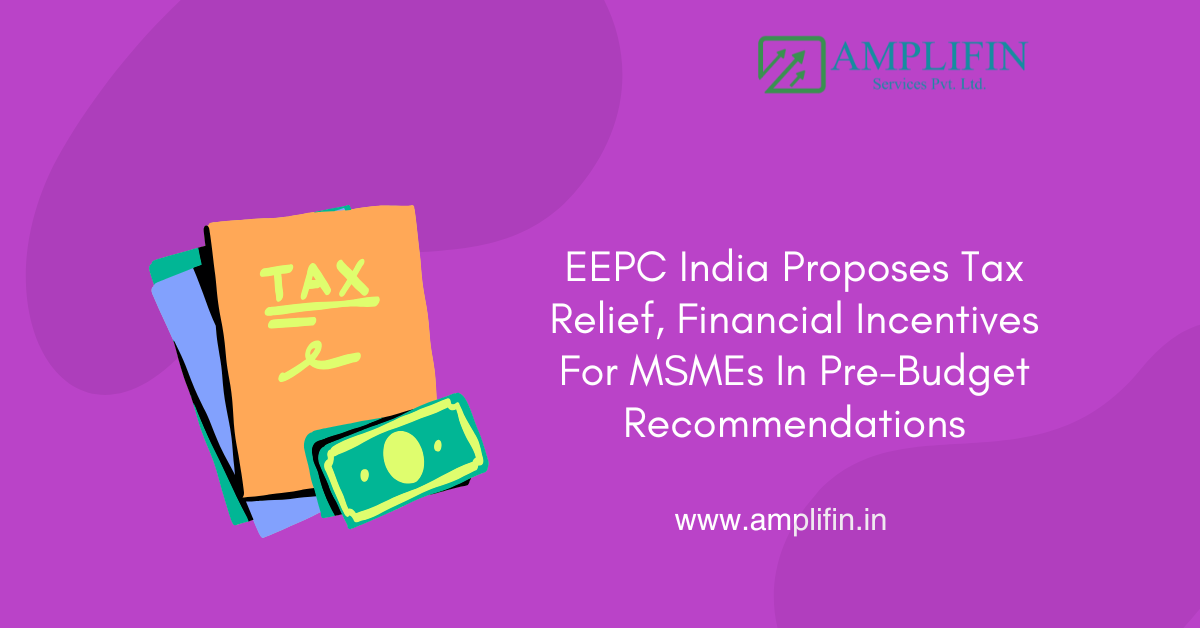India’s MSME Sector: Navigating Tax Incentives and Pre-Budget Recommendations for 2024
The Micro, Small, and Medium Enterprises (MSMEs) stand as the cornerstone of India’s economic ecosystem, driving innovation, employment, and economic growth. As the 2024 Union Budget approaches, a critical dialogue emerges around tax incentives and financial strategies that could potentially transform the MSME landscape. This comprehensive exploration delves into the intricate world of pre-budget recommendations, highlighting the pivotal role of MSMEs in India’s economic narrative.
Why is this article crucial? MSMEs are not just business entities; they are the lifeblood of India’s economic machinery. With nearly 60 per cent contribution to the country’s GDP and a dynamic workforce, understanding the nuanced tax proposals and financial incentives becomes paramount for entrepreneurs, policymakers, and economic enthusiasts alike. From tax relief to innovative financial incentives for MSMEs, this article unravels the potential game-changing strategies that could propel MSMEs to unprecedented heights.

Table of Contents
- The MSME Ecosystem: India’s Economic Powerhouse
- Pre-Budget Recommendations: What Are MSMEs Seeking in New Delhi?
- Tax Propose: A Comprehensive Breakdown
- Can Taxation Be a Growth Catalyst?
- Interest Equalisation Scheme: Financing the Future
- EEPC India’s Role in MSME Development
- Challenges and Opportunities in the MSME Sector
- Innovative Financing: Beyond Traditional Mechanisms
- Global Competitiveness and Export Potential
- Future Outlook: Transforming the MSME Landscape
The MSME Ecosystem: India’s Economic Powerhouse
India’s MSME sector represents a vibrant and critical component of the national economic framework. These enterprises span diverse categories, from sole proprietorships to private limited companies, each contributing uniquely to the country’s economic dynamism, especially noted in KNN India. The sector’s significance cannot be overstated – MSMEs are not just business units but engines of innovation, employment, and sustainable growth.
The ecosystem is characterized by its resilience and adaptability. Despite facing numerous challenges, MSMEs have consistently demonstrated their ability to navigate complex economic landscapes. From manufacturing units to service-oriented businesses, these enterprises represent the true spirit of Indian entrepreneurship, driving economic progress at grassroots levels.
Pre-Budget Recommendations: What Are MSMEs Seeking?
The pre-budget memorandum to the ministry of micro, small and medium enterprises reveals a comprehensive set of recommendations aimed at bolstering the MSME sector in New Delhi. Stakeholders are seeking strategic support that goes beyond traditional financial incentives for MSMEs. The focus is on creating an ecosystem that nurtures growth, reduces compliance burdens, and provides targeted financial support.
Key proposals include expanding the Interest Equalisation Scheme, introducing more favorable tax slabs, and providing innovative financing mechanisms. The Engineering Export Promotion Council (EEPC India) has been particularly vocal about these recommendations, emphasizing the need for a holistic approach to MSME development.
Tax Propose: A Comprehensive Breakdown
Taxation emerges as a critical area of focus in the 2024 pre-budget discussions. Currently, private limited companies face a 25 per cent income tax rate, while entities like sole proprietorships and partnerships encounter higher tax rates of approximately 35 per cent. The proposed tax relief aims to address these disparities and provide meaningful financial breathing room for small businesses.
The tax proposals are not merely about reduction but about creating a more competitive and supportive environment. Suggestions include introducing a more favorable income tax slab for MSME manufacturing units, offering depreciation benefits, and providing incentives for reinvestment. These strategies aim to unify the tax approach and support the sector’s growth potential.
Can Taxation Be a Growth Catalyst?
Traditionally viewed as a burden, taxation is being reimagined as a potential growth catalyst for MSMEs. The proposed tax proposals go beyond simple rate reductions, focusing on creating a more comprehensive and supportive financial ecosystem. By introducing strategic tax incentives, the government aims to encourage innovation, investment, and sustainable business practices.
One notable proposal is the 100 per cent depreciation for investments in specific areas like solar power generation. This approach not only provides financial relief but also encourages MSMEs to invest in sustainable and innovative technologies. The tax strategy is evolving from a mere revenue collection mechanism to a tool for economic transformation.
Interest Equalisation Scheme: Financing the Future
The Interest Equalisation Scheme (IES) stands out as a critical financial mechanism for MSMEs in the context of economic times. Currently, the scheme provides reduced interest rates on loans, but there are proposals to expand its scope and impact. EEPC India said it has suggested increasing the benefits limit from Rs 50 lakh to Rs 10 crores, which could significantly enhance financial accessibility for small MSME units.
This scheme is more than just a financial tool – it’s a strategic intervention designed to address the chronic challenge of credit accessibility for MSMEs. By reducing the cost of borrowing and expanding the scheme’s coverage, the government aims to provide MSMEs with the financial flexibility needed to invest, grow, and compete globally.
EEPC India’s Role in MSME Development
The Engineering Export Promotion Council (EEPC India) has emerged as a crucial advocate for MSME interests. As the apex engineering exports promotion body, they have been instrumental in presenting comprehensive pre-budget recommendations that address the sector’s multifaceted challenges.
Their approach is holistic, focusing not just on financial incentives but on creating a supportive ecosystem for MSMEs. From promoting export potential to highlighting investment opportunities, EEPC India plays a pivotal role in shaping policies that can transform the MSME landscape in the context of the unionbudget2025.
Challenges and Opportunities in the MSME Sector
Despite their significant contribution to India’s GDP, MSMEs continue to face numerous challenges. Limited access to credit, technological gaps, and competitive pressures pose ongoing hurdles. However, these challenges are accompanied by unprecedented opportunities for innovation and growth.
The pre-budget recommendations aim to address these challenges through targeted interventions, including incentives for MSMEs in pre-budget discussions. By focusing on areas like technology adoption, export promotion, and financial support, the proposed strategies seek to transform challenges into opportunities for sustainable growth.
Innovative Financing: Beyond Traditional Mechanisms
The evolving MSME ecosystem demands innovative financing mechanisms and incentives for MSMEs in pre-budget discussions. Beyond traditional bank loans, there’s a growing emphasis on alternative funding sources, technology-enabled financing, and strategic investment approaches for MSME units. The proposed schemes aim to expand financing options, making capital more accessible and flexible for MSMEs in pre-budget recommendations.
From venture capital to government-backed credit schemes, the financing landscape for MSMEs is undergoing a significant transformation. The goal is to create a comprehensive ecosystem that provides financial support tailored to the unique needs of small and medium enterprises.
Global Competitiveness and Export Potential
Export potential remains a critical focus area for MSMEs. The pre-budget recommendations emphasize strategies to enhance global competitiveness, simplify export procedures, and provide targeted support for international market expansion. EEPC India has been particularly vocal about improving the export ecosystem for MSMEs.
By offering financial incentives, reducing regulatory complexities, and providing strategic support, the proposed measures seek to position Indian MSMEs as robust players in the global marketplace. The focus is on creating an ecosystem that supports innovation, quality, and international competitiveness.
Future Outlook: Transforming the MSME Landscape
The proposed pre-budget recommendations represent a comprehensive vision for transforming India’s MSME ecosystem, as emphasized by the chairman of EEPC India. By addressing financial, technological, and regulatory challenges, these strategies aim to unlock the sector’s full potential and create a more dynamic and resilient economic framework.
The future looks promising, with increased focus on innovation, sustainability, and strategic growth. MSMEs are poised to play an even more crucial role in India’s economic narrative, driving progress, creating employment, and contributing to national development, especially with the rise of new pre-budget initiatives.
Key Takeaways: MSME Tax Incentives and Pre-Budget Insights
- MSMEs contribute nearly 60 per cent to India’s GDP
- Proposed tax relief includes potential 25 per cent income tax slab
- Interest Equalisation Scheme might expand credit limits to Rs 10 crores, providing crucial financial incentives for MSMEs.
- 100 per cent depreciation offered for specific investments in MSME units.
- Strategic recommendations focus on holistic enterprise development
- Export potential and global competitiveness are key focus areas
- Innovative financing mechanisms are being explored
- Technological innovation and digital transformation are critical
- Simplified tax structures and reduced compliance burdens are proposed as part of the financial incentives for MSMEs.
- Financial incentives aim to boost working capital and reinvestment
The journey towards a robust and dynamic MSME ecosystem continues, with each budget presenting new opportunities for growth, innovation, and strategic transformation.
